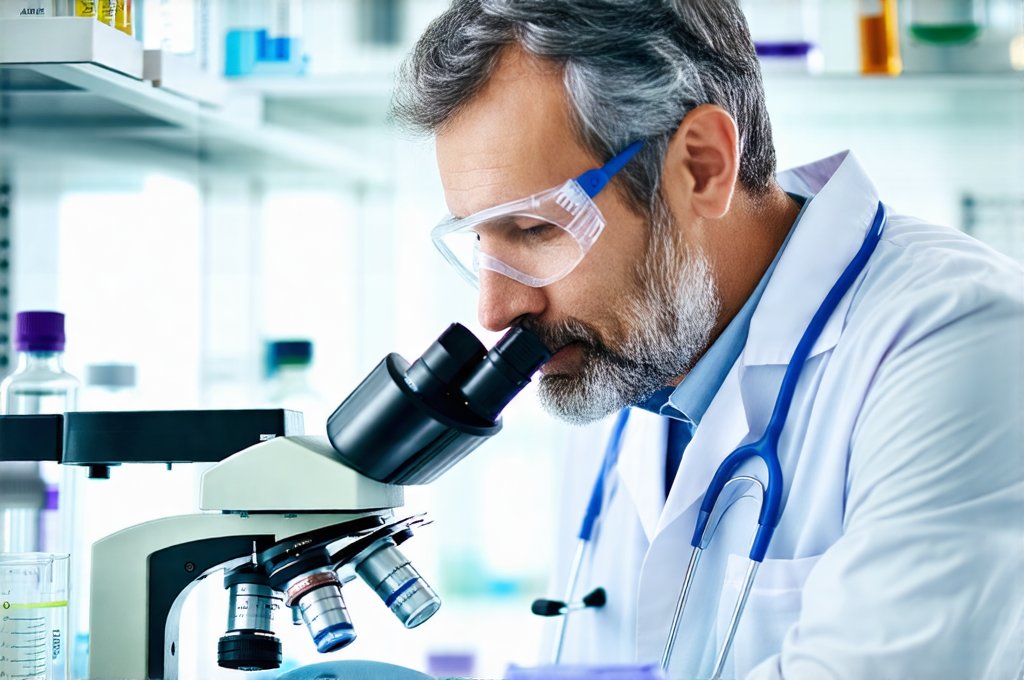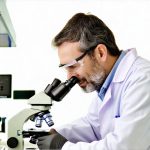Maintaining adequate hydration is paramount for overall well-being, yet it often presents unique challenges for travelers. Beyond simply feeling thirsty, dehydration can significantly impact energy levels, cognitive function, and even the body’s ability to adapt to new environments. For individuals involved in research or needing to provide biological samples – whether for health monitoring, legal reasons, or scientific studies – maintaining hydration without compromising sample integrity adds another layer of complexity. This requires a nuanced approach that considers not only how much fluid is consumed but also what fluids are chosen and how they interact with physiological processes and potential analytical requirements. The goal isn’t just to avoid dehydration, but to ensure any collected samples accurately reflect the traveler’s true biological state, free from artificial distortions caused by hydration strategies.
Travel introduces numerous variables that can disrupt established hydration routines: changes in climate, altitude, activity levels, access to clean water sources, and even altered dietary habits all play a role. These factors can quickly lead to fluid imbalances if not proactively managed. Moreover, certain common travel practices – like air travel itself, which is known for its dehydrating effects due to low humidity – exacerbate the risk of dehydration. The challenge lies in developing portable hydration strategies that are both effective and compatible with maintaining sample integrity, meaning avoiding substances or quantities that could falsely elevate or skew results during analysis. This article will explore practical methods for travelers to stay hydrated while safeguarding the accuracy of biological samples, focusing on informed choices regarding fluids, timing of consumption, and considerations specific to different sampling protocols.
Portable Hydration Solutions for Travelers
The most straightforward approach to hydration is often overlooked: consistent intake of plain water. However, travel frequently necessitates more creative solutions. Carrying a reusable water bottle is the first step, allowing travelers to refill from safe sources whenever possible. Collapsible bottles are particularly useful for minimizing space and weight. Beyond bottled water, hydration tablets or electrolyte powders can be valuable additions, especially during periods of increased activity or in hot climates. However, careful consideration must be given to the ingredients. Many commercially available electrolyte drinks contain high levels of sugar or artificial sweeteners which could potentially impact certain biological markers if consumed shortly before sampling. Opting for formulations with minimal additives and focusing on essential electrolytes – sodium, potassium, magnesium, and chloride – is key. Furthermore, understanding the specific analytical requirements of any planned sample collection is crucial; some tests may be sensitive to even trace amounts of certain substances found in electrolyte mixes. For individuals concerned about kidney health, exploring hydration strategies for supporting kidney function can offer valuable guidance.
Another portable hydration solution involves incorporating hydrating foods into travel plans. Fruits like watermelon, oranges, and berries have high water content and provide essential vitamins and minerals. Similarly, vegetables such as cucumbers and celery can contribute significantly to daily fluid intake. Packing healthy snacks that support hydration minimizes reliance on less desirable options often available during travel – sugary drinks or highly processed foods which can further exacerbate dehydration through osmotic imbalances. Pre-planning meals and snacks allows for greater control over dietary choices and ensures a consistent supply of hydrating nutrients, promoting both overall well-being and sample integrity.
Finally, it’s important to remember that hydration isn’t limited to water intake alone. Avoiding excessive consumption of dehydrating beverages – alcohol, caffeine, and sugary drinks – is just as critical. These substances act as diuretics, increasing fluid loss and potentially disrupting electrolyte balance. While a moderate amount of coffee or tea may not significantly impact hydration for most individuals, it’s best to be mindful of their effects, especially when traveling in hot climates or engaging in strenuous activity. Prioritizing water and hydrating foods remains the cornerstone of any effective portable hydration strategy. For those with bladder sensitivity, understanding why hydration timing matters for bladder-sensitive people can be particularly helpful.
Timing and Quantity: Optimizing Hydration for Sample Collection
The timing of fluid intake relative to sample collection is arguably as important as the type of fluid consumed. A large volume of water ingested immediately before a blood draw, for example, can dilute plasma osmolality and potentially skew results related to kidney function or electrolyte balance. Conversely, inadequate hydration can lead to hemoconcentration – an increase in the concentration of certain analytes due to decreased plasma volume – producing falsely elevated readings. Therefore, standardized protocols often recommend avoiding fluid intake for a specific period before sample collection, typically 8-12 hours for blood samples and shorter periods (e.g., 2-4 hours) for urine samples. Maintaining proper hydration is also crucial for urological system recovery.
The ideal quantity of fluid to consume is also dependent on individual factors such as body weight, activity level, climate, and the type of sample being collected. General guidelines suggest aiming for a consistent daily intake based on these variables rather than attempting to “catch up” with large volumes of water immediately before or after travel. Monitoring urine color can provide a simple visual indicator of hydration status: pale yellow indicates adequate hydration, while dark yellow suggests dehydration. It’s also important to note that individual responses to fluid intake vary; some individuals may require more fluids than others to maintain optimal hydration levels.
Beyond the timing and quantity, the method of rehydration matters too. Rapidly consuming large amounts of water can overwhelm the kidneys and lead to temporary fluid imbalances. Instead, spreading fluid intake throughout the day allows for better absorption and utilization by the body. Sipping on water regularly is more effective than gulping down large volumes at once. This approach minimizes the risk of diluting electrolytes or causing discomfort during travel.
Hydration Considerations for Specific Sample Types
Different biological samples require different hydration considerations to ensure accuracy. For blood samples, as mentioned previously, avoiding excessive fluid intake in the hours leading up to collection is crucial. Fasting protocols may also be required for certain blood tests, further complicating hydration management. Individuals should always follow specific instructions provided by the laboratory or healthcare provider regarding pre-sample preparation. The focus here should be on maintaining consistent hydration prior to the fasting period and avoiding rapid rehydration immediately before the draw.
For urine samples, timing is also critical. A first-morning urine sample is often preferred for certain analyses, as it provides a more concentrated measure of metabolites excreted overnight. However, excessive fluid intake the night before can dilute the sample and compromise results. Following a standardized hydration protocol – typically involving consistent fluid intake throughout the day but avoiding large volumes immediately before collection – helps ensure accurate readings.
Finally, saliva samples present unique challenges. Salivary flow can be affected by dehydration, altering the concentration of analytes and potentially introducing errors in analysis. Maintaining adequate hydration throughout the day is essential for ensuring consistent salivary flow and accurate results. However, avoiding food or drink for a short period before collection (typically 30-60 minutes) is also recommended to minimize contamination and ensure representative samples.
Travel Disruptions & Hydration Strategies
Travel itself introduces disruptions that can challenge even well-planned hydration strategies. Air travel, with its low humidity and recirculated air, significantly increases fluid loss. Regularly sipping water during flights – ideally every hour – helps counteract this effect. Avoiding alcohol and caffeine is also recommended, as these substances exacerbate dehydration in the dry cabin environment. Furthermore, staying hydrated before, during, and after a flight can minimize fatigue and improve overall well-being.
Altitude changes pose another challenge. Higher altitudes require increased fluid intake to compensate for faster respiration rates and greater evaporative losses. Acclimatizing gradually to higher elevations – if possible – allows the body to adjust to the lower oxygen levels and reduces the risk of dehydration. Staying hydrated is particularly important during physical activity at high altitudes, as exertion further increases fluid loss.
Changes in diet and routine can also impact hydration. Travel often disrupts regular eating patterns and access to familiar foods. Packing healthy snacks and maintaining a consistent fluid intake schedule helps mitigate these effects. Being mindful of food safety and avoiding contaminated water sources is essential for preventing dehydration caused by gastrointestinal illness. Ultimately, proactive planning and adaptability are key to maintaining adequate hydration throughout travel disruptions. For active days, consider reviewing hydration strategies before your trip.
Resources & Further Information
Staying informed about best practices for portable hydration and sample integrity is crucial for travelers involved in research or needing accurate biological assessments. Several reputable resources offer valuable information and guidance:
- CDC (Centers for Disease Control and Prevention): Provides comprehensive advice on traveler’s health, including hydration recommendations and guidelines for preventing waterborne illnesses: https://www.cdc.gov/
- WHO (World Health Organization): Offers information on safe drinking water and hygiene practices for travelers: https://www.who.int/
- Laboratory-specific instructions: Always prioritize the specific hydration and preparation guidelines provided by the laboratory analyzing your samples, as these may vary depending on the type of test being performed.
By combining proactive planning, informed choices regarding fluids, and consistent monitoring of hydration status, travelers can effectively mitigate the risks associated with dehydration while safeguarding the accuracy of biological samples. This approach ensures both personal well-being and the reliability of important data for research or health assessment purposes. You might also find tea-like decoctions a refreshing alternative during travel.





















